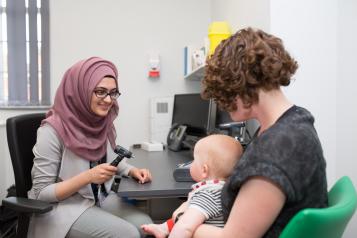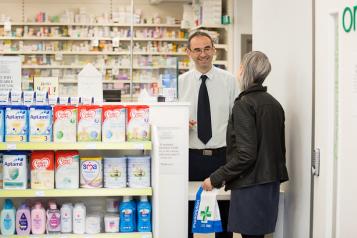How we set our priorities

Each year Healthwatch Wiltshire sets its priorities for the year ahead based on the experiences that we hear from local people.
These are gathered by:
- Reviewing feedback that we have received over the past year
- Conversations with our Board and volunteers
All the evidence and feedback we gather is shared with the Board and they help us decide what areas we focus on in the year ahead.
We also talk to local commissioners and voluntary sector organisations to ensure our work can add value to what they’re doing and to check that we aren’t duplicating work that’s already being done elsewhere.
While other people can suggest areas of focus to us, we are an independent organisation and decide our own workplan.
Our priorities for 2024/25
This year we ran an online survey throughout March and we also visited libraries, community campuses and local groups to gather people’s views.
The survey invited respondents to choose their preferences from a list of six key project themes, all of which came from the feedback we’d received over the previous year:
- The wellbeing of children and young people
- Pharmacy
- Care at home
- Accessibility of health services
- How the cost of living is affecting our health
- The impact of living in a rural county.
The chart below shows the results of the survey.

What people told us
A huge thank you to the 211 people who shared their thoughts with us! Key themes included:
- Issues waiting for prescriptions at pharmacies, the availability of medication, and accessing the service outside of ‘normal’ hours.
- Concerns about how pharmacies would cope with the introduction of the new Pharmacy First scheme were also raised.
- Mental health and wellbeing support for young people is difficult to access.
- The need to join up health and social care and improve communication between the two.
- Better support for unpaid carers, particularly those who support people with conditions such as dementia.
- Challenges in accessing support for specific conditions such as Autism, and for those for whom English is not their first language.
- People also mentioned feeling the impact of the cost of living crisis, such as having to decide which medication to collect due to prescription charges, and having to seek private dental treatment as no NHS appointments are available.
- The issues of living in a rural county, where getting around can be difficult due to poor transport links, triggering loneliness and isolation for some.
A snapshot of your comments
Your thoughts on the key themes.
“Nurses visiting patients at home rather them having to go to hospital for things that could be managed in safety of own home.”
“Joining up care from various services and working together to support families.”
“How many pharmacies are taking part in Pharmacy First, is space available for private conversations if not how will these conversations happen? Will a qualified pharmacist always be on duty to advise?”
“Understand challenges for those with disability or English not first language.”
“Transport is an issue in rural areas to access health services.”
“Better access to counselling and face to face mental health support.”
Our planned work for the year ahead
Based on the survey responses we received, and following a discussion with our volunteers and our Board, the following three priority areas have been agreed:
- Pharmacy - a review of the Pharmacy First scheme.
- Living in a rural county - focusing on the issues people face living in isolated areas and how they access services.
- Care at home - hearing the views of people who have an NHS@Home (virtual ward) package to provide care at home and how this is working for them.
What about the other themes?
We have decided not to do a specific project on children and young people’s wellbeing or accessing services, but feedback on both will continue to be monitored.
A lot of work has already being done on the cost of living crisis, so our role here will continue to focus on providing advice and information about where people can get local support.
We anticipate that all three of these themes will come up during our engagement on living in a rural county.
Stay up to date with our projects
Here’s how you can keep in touch and get involved:
- Sign up to our news alerts (go to the bottom of our homepage)
- Keep an eye on our Key projects page for the latest surveys
- Have your say using our online feedback form
- Volunteer with us!
- Follow us on Twitter, Facebook and Instagram
Thank you to the 211 people who shared their thoughts with us!


